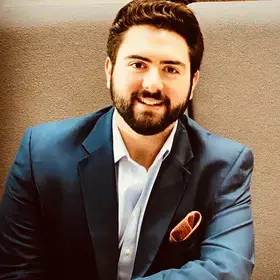Lauren R. Goodwin, Ph.D., a graduate of the Executive M.S. in Technology Management program, was named the chief information officer for NASA’s Johnson Space Center and White Sands Test Facility earlier this year. Since graduating, she has earned a doctorate in neuroscience and artificial intelligence, started her own technology company, and serves as a course associate for the Cybersecurity and Executive Response course at Columbia. We asked Dr. Goodwin about the program, her career path, and her accomplishments. Edited excerpts are below.
Tell us about your involvement in Columbia’s Technology Management program.
Since 2017, I’ve been fortunate to stay engaged with Columbia as a course associate. I believe in a growth mindset and feel fortunate to grow and learn among current Columbia students. Student engagement keeps me fresh and in touch with many leaders from multiple industries, ensuring I can evolve and adapt my own teaching and practice.
If you could pinpoint the most rewarding aspects of the program, which would they be?
I value the interconnectivity of the University with the greater world. Launching my own technology company as a student at Columbia helped me to align my idea with practical, financial, and operational components and bring the idea to fruition. I appreciated the incubation environment, where practical innovation met real-world application.
How does the program continue to play a role in your career?
The experiential learning of Columbia’s curriculum inspired me to go on to earn my doctorate, focusing my research on educational neuroscience and artificial intelligence. My experiences helped me learn effectively through active, engaged learning. This drove my passion to perform research that can help transform the education system to focus on the science of learning and the benefits of technology to ensure all students, regardless of age or circumstance, have an opportunity to learn. The faculty, the mentors, and the guest lecturers inspired me and continued to support me after the program ended. The commitment to lifelong learning is fostered inside and outside this program.
How can leaders in technology create a more secure digital landscape in the future?
Practical, risk-based security is the most effective way to create a secure digital landscape. DevSecOps is the most effective operating model in today’s landscape, but this has to start with a change in culture. Security organizations should move away from manual-assurance-based security to security and policy as code embedded in infrastructure with auto-evidencing and monitoring.


